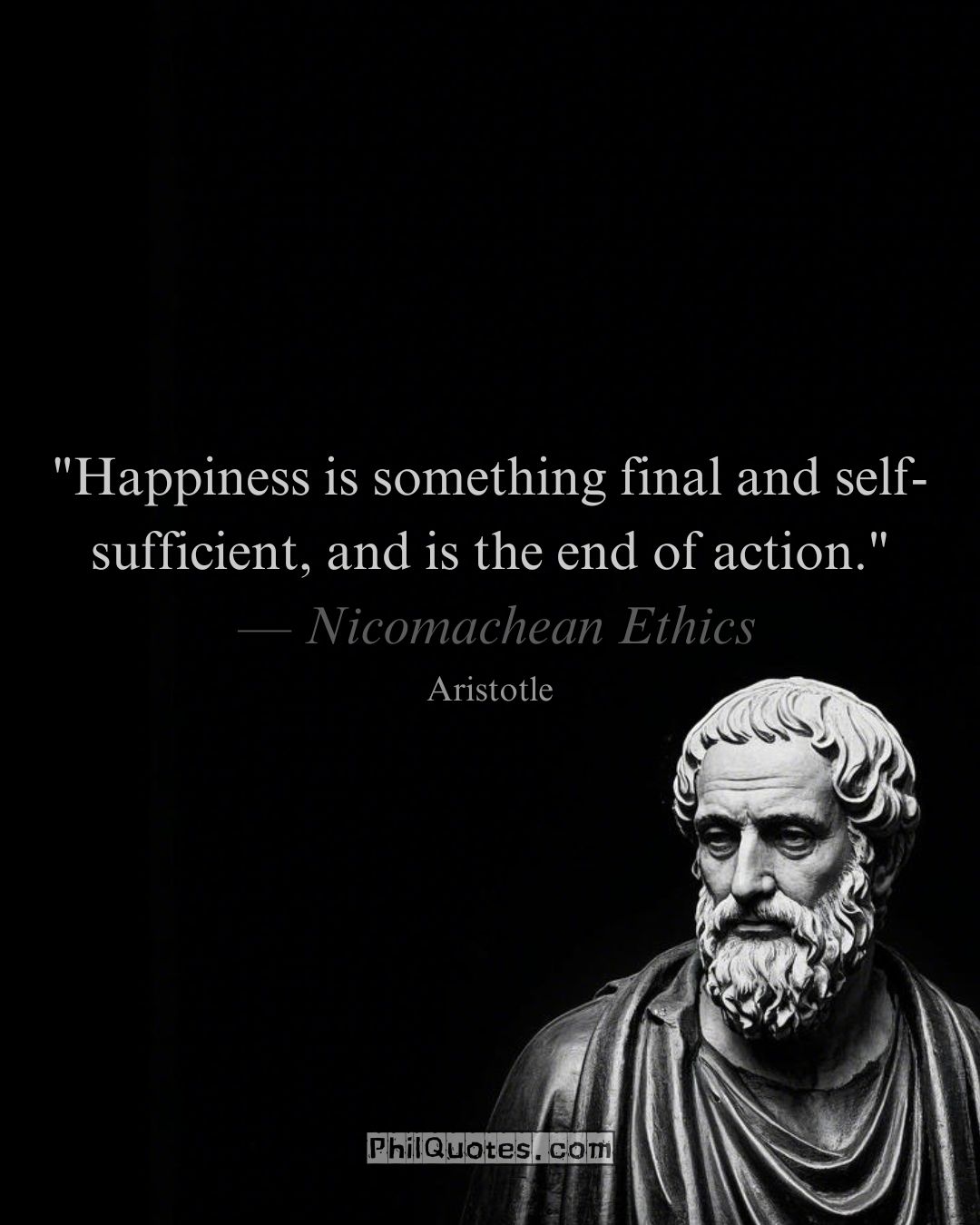
“Happiness is something final and self-sufficient, and is the end of action.”
— Aristotle, Nicomachean Ethics, Book I, Chapter 7
Simple Explanation:
Aristotle defines happiness (eudaimonia) as the ultimate goal that gives meaning to all other pursuits. Unlike temporary pleasures (e.g., eating dessert) or practical goals (e.g., earning money), happiness is “final” (nothing beyond it is needed) and “self-sufficient” (it fulfills us completely).
Real-World Connection:
① Training for a Marathon →
You run daily (action) → improve stamina (immediate good) → complete the race (higher good) → prove your perseverance (ultimate good/happiness).
② Mentoring a Colleague →
You share expertise (action) → solve their problem (proximate good) → strengthen teamwork (larger good) → find fulfillment in contributing (self-sufficient good).
③ The Aristotle Blueprint →
All goals are stepping stones; true happiness (eudaimonia) emerges when actions align with virtue (courage, wisdom) and purpose.